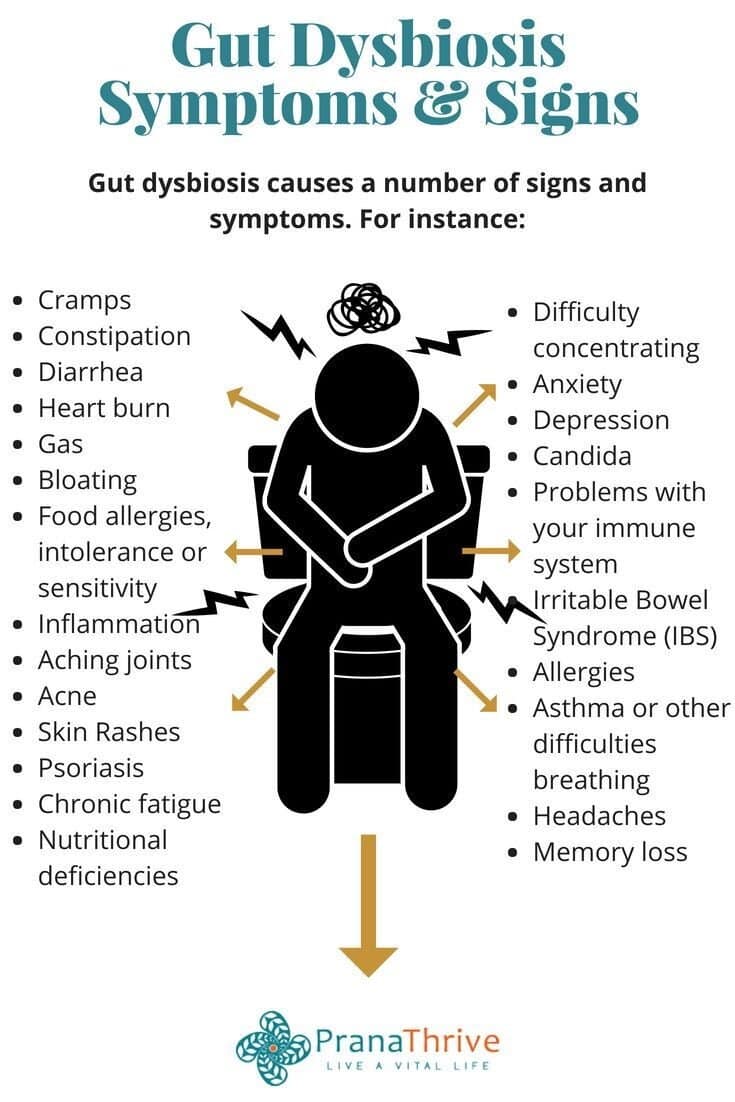Spotting the Signs: A Parent’s Guide to Gut Dysbiosis Symptoms in Children
Hello, super parents! ? Are you concerned about your little one’s tummy troubles? You’re not alone! Many parents are on the lookout for information about gut dysbiosis symptoms in children. Gut health plays a crucial role in overall well-being, and it’s never too early to be aware of the signs that things might be a bit off in your child’s digestive system. Sit back, and let’s unravel the mysteries of the gut together!
Understanding Gut Dysbiosis
First things first, let’s understand what we mean by gut dysbiosis. It’s a fancy term that simply means there’s an imbalance in the community of microbes living in the digestive system. Think of it as a gut garden that needs the right mix of plants (microbes) to thrive. When harmful bacteria outnumber the good guys, your child may experience a range of digestive and non-digestive symptoms. ??
Common Symptoms of Gut Dysbiosis in Kids
Children can be mysterious creatures, and sometimes it’s tricky to figure out what’s bugging them. Here’s a list of common symptoms that might indicate a gut imbalance:
- Tummy Troubles – If your kiddo frequently complains of stomach aches, cramps, or has irregular bathroom habits, it could be a red flag. ?
- Digestive Disorders – Keep an eye out for constipation, diarrhea, or a mix of both—often referred to as Irritable Bowel Syndrome (IBS).
- Weird Appetite Changes – A sudden aversion to food or ravenous hunger might be a signal. Little tummies telling big tales!
- Unpredictable Moods – Yes, mood swings can be more than just a growing phase. The gut and brain are chatty pals, influencing each other!
While these symptoms can be concerning, they aren’t always a sure sign of gut dysbiosis. Our munchkins can experience these symptoms due to various reasons like stress or dietary changes. However, it’s worth it to be vigilant and seek the advice of a healthcare professional if they persist.
Causes of Gut Dysbiosis
Now, let’s sprinkle some knowledge about what might be causing these gut issues. Knowing the root causes can help you steer your child back to the path of gut wellness!
- Antibiotics and Medications – These can be life-saving, but sometimes they knock out those friendly gut bugs along with the baddies.
- Poor Diet – A menu lacking in fibers, fruits, and veggies can leave good bacteria starving, while processed foods can feed the harmful ones. ??
- Infections – An encounter with a gut infection can shift the balance in the microbial community.
- Stress – Yes, even in children, stress can make the gut microbes go haywire. And let’s face it, growing up can be stressful!
It’s essential to address these causes not only to alleviate the symptoms but also to prevent any long-term impacts on your child’s health.

Five Things Parents Should Know in Preparing for Gut Dysbiosis Symptoms
As you navigate the realm of gut health, arm yourself with this vital information to keep your child’s digestive system sailing smoothly:
- Keep a Symptom Diary – Jot down any odd digestive patterns, eating habits, and mood changes in your child. This can be a treasure map to understanding their gut health.
- Embrace Probiotics and Prebiotics – Introducing fermented foods like yoghurt and high-fibre foods can help nurture good bacteria in the gut. They’re like superheroes for the microbial world!
- Hydration is Key – Encourage your child to drink plenty of water. Proper hydration keeps the digestive tract flowing and assists in flushing out unwanted toxins.
- Limit Sugar and Processed Foods – These can be villains in your child’s gut story, encouraging bad bacteria and yeast to flourish. Opt for whole, nutrient-rich foods instead.
- Encourage Activity and Play – Regular exercise and stress-relieving activities like play can positively influence gut health. So, let your kids romp and stomp to their heart’s content!
Being proactive with these steps can make a significant difference in preventing and managing gut dysbiosis symptoms. Keep these tips as handy as your superhero cape, dear parents!
Treatment Options and Managing Gut Dysbiosis
Tackling gut dysbiosis can look like a hero’s quest. Fear not, for you have powerful allies in the form of treatment options:
- Consult a Pediatric Gastroenterologist – These specialists can offer personalized advice and potential treatment plans, such as dietary adjustments or supplements.
- Probiotic Supplements – In certain cases, healthcare providers may recommend probiotics to restore the gut’s microbial balance.
- Eradication of Infections – Should an infection be the culprit, appropriate treatment will be crucial in regaining harmony in your child’s gut.
- Integrative Therapies – Techniques such as stress management, and in some instances, alternative treatments like acupuncture, can support gut health.
It’s important to approach gut dysbiosis with patience and persistence. With the right treatment and lifestyle changes, your little one’s gut garden can bloom once again!
Lifestyle Changes That Foster a Healthy Gut
Incorporating simple lifestyle changes can create an environment in which good gut bacteria can thrive. Here are some strategies to consider:
- Balanced Meals – Focus on meals with a rainbow of fruits and vegetables, lean proteins, and whole grains. Diversity on the plate means diversity in the gut!
- Regular Exercise – Active play and sports can help to reduce stress and support a healthy digestive tract.
- Adequate Sleep – Restful slumber is not only a dream for parents but also for a child’s gut health, aiding in the repair and recovery of the digestive system.
- Family Support – A supportive family environment can help reduce stress in children, which is beneficial for maintaining a balanced gut microbiome.
Embracing these lifestyle changes as a family can pave the way for your child’s vibrant and healthy gut, making every day a gut-happy day!
See more great Things to Do with Kids in New Zealand here. For more information see here
Disclaimer
The articles available via our website provide general information only and we strongly urge readers to exercise caution and conduct their own thorough research and fact-checking. The information presented should not be taken as absolute truth, and, to the maximum extent permitted by law, we will not be held liable for any inaccuracies or errors in the content. It is essential for individuals to independently verify and validate the information before making any decisions or taking any actions based on the articles.




